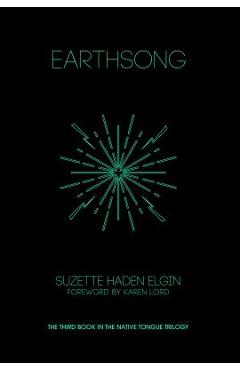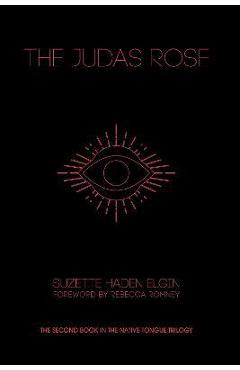Native Tongue - Suzette Haden Elgin

Detalii Native Tongue - Suzette Haden
libris.ro
100.16 Lei
111.29 Lei
Fiction
Suzette Haden Elgin
Native Tongue - Suzette Haden - Disponibil la libris.ro
Pe YEO găsești Native Tongue - Suzette Haden de la Suzette Haden Elgin, în categoria Fiction.
Indiferent de nevoile tale, Native Tongue - Suzette Haden Elgin din categoria Fiction îți poate aduce un echilibru perfect între calitate și preț, cu avantaje practice și moderne.
Preț: 100.16 Lei
Caracteristicile produsului Native Tongue - Suzette Haden
- Brand: Suzette Haden Elgin
- Categoria: Fiction
- Magazin: libris.ro
- Ultima actualizare: 28-10-2025 01:22:05
Comandă Native Tongue - Suzette Haden Online, Simplu și Rapid
Prin intermediul platformei YEO, poți comanda Native Tongue - Suzette Haden de la libris.ro rapid și în siguranță. Bucură-te de o experiență de cumpărături online optimizată și descoperă cele mai bune oferte actualizate constant.
Descriere magazin:
Originally published in 1984, this dystopian trilogy--a pioneering feminist experiment--is a testament to the power of language and women\'s collective action (Literary Hub). In 2205, the 19th Amendment has long been repealed and women are only valued for their utility. The Earth\'s economy depends on an insular group of linguists who breed women to be perfect interstellar translators until they are sent to the Barren House to await death. But instead, these women are slowly creating a language of their own to make resistance possible. Ignorant to this brewing revolution, Nazareth, a brilliant linguist, and Michaela, a servant, both seek emancipation in their own ways. But their personal rebellions risk exposing the secret language, and threaten the possibility of freedom for all. This angry feminist text is also an exemplary experiment in speculative fiction, deftly and implacably pursuing both a scientific hypothesis and an ideological hypothesis through all their social, moral, and emotional implications. --Ursula K. Le Guin A welcome reminder of the feminist legacies of science fiction. . . . Explores the power of speech, agency, and subversion in a work that is as gripping, troubling, and meaningful today as it has ever been. --Publishers Weekly (starred review) Originally published in 1984, this dystopian trilogy--a pioneering feminist experiment--is a testament to the power of language and women\'s collective action (Literary Hub). In 2205, the 19th Amendment has long been repealed and women are only valued for their utility. The Earth\'s economy depends on an insular group of linguists who breed women to be perfect interstellar translators until they are sent to the Barren House to await death. But instead, these women are slowly creating a language of their own to make resistance possible. Ignorant to this brewing revolution, Nazareth, a brilliant linguist, and Michaela, a servant, both seek emancipation in their own ways. But their personal rebellions risk exposing the secret language, and threaten the possibility of freedom for all. This angry feminist text is also an exemplary experiment in speculative fiction, deftly and implacably pursuing both a scientific hypothesis and an ideological hypothesis through all their social, moral, and emotional implications. --Ursula K. Le Guin A welcome reminder of the feminist legacies of science fiction. . . . Explores the power of speech, agency, and subversion in a work that is as gripping, t

Produse asemănătoare
Produse marca Suzette Haden Elgin

The Gentle Art of Verbal Self Defense at Work - Suzette Haden Elgin
![]() libris.ro
libris.ro
Actualizat in 28/10/2025
94.58 Lei


